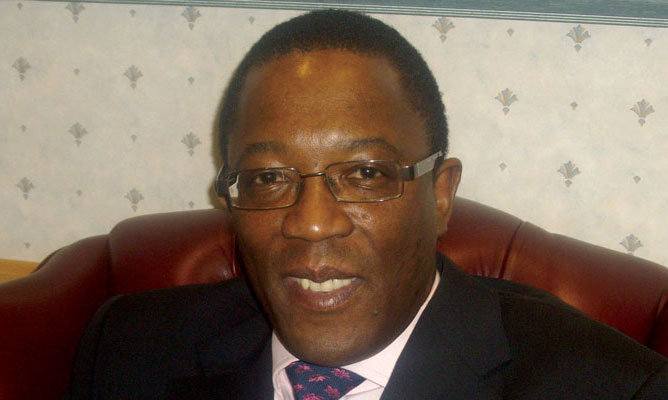
Harare City Council has suspended without benefits newly-appointed town clerk James Mushore until the High Court determines a case filed by resident’s challenging a decision by government to reverse his hiring.
BY XOLISANI NCUBE/RICHARD CHIDZA
A drama-filled special council meeting chaired by acting mayor Chris Mbanga yesterday resolved to suspend Mushore without pay.
Before the meeting, Zanu PF councillors were singing in the council chambers, with one of them, Musa Gwasira, likening Mushore to the popularised quail bird (chihuta) “Mushore was a nobody. We have made him popular. He is now like a quail bird,” Gwasira shouted.
According to council spokesperson Michael Chideme, who spoke on behalf of Mbanga, council resolved to send Mushore home pending finalisation of all court cases dealing with his issue.
“Council has resolved that Mushore should stop reporting for duty until all cases are finalised,” Chideme said.
As councillors were coming out of the chambers, Mushore was spotted entering his office.
During the full council meeting, director of water Christopher Zvobgo stood in for acting town clerk Josephine Ncube, who was reportedly locked in her office.
- Chamisa under fire over US$120K donation
- Mavhunga puts DeMbare into Chibuku quarterfinals
- Pension funds bet on Cabora Bassa oilfields
- Councils defy govt fire tender directive
Keep Reading
The fight for the town clerk’s post has claimed the scalp of mayor Bernard Manyenyeni, who has been suspended by Local Government minister Saviour Kasukuwere on allegations of refusing to comply with a ministerial directive not to appoint Mushore.
Attempts by residents to block the full council meeting pending the finalisation of a court case in which residents are suing Kasukuwere failed after the High Court dismissed the case as not urgent.
Meanwhile, the MDC-T and Manyenyeni have approached the Constitutional Court (ConCourt) with a view to have huge swathes of the Urban Councils Act (UCA) declared ultra vires the Constitution.
Kasukuwere, the Justice minister, Harare Provincial Affairs minister Miriam Chikukwa and the City of Harare are the respondents in the matter.
Manyenyeni in the application pokes holes in the UCA, arguing the country’s supreme charter renders Kasukuwere’s alleged interference in the management of local authorities illegal.
“The governance and management issues of urban local authorities were governed by the UCA, which gave the Local Government minister imperial powers and wide Executive powers over local authorities in the country.
“The minister had powers to direct how local authorities were run. This power included the power to suspend and dismiss elected officials of council, and the employment and determination of conditions of service of senior employees of council. The minister also enjoyed powers to alter, vary or rescind resolutions and decisions of council,” Manyenyeni said in his background to the case.
Manyenyeni, who is being represented by the opposition party’s secretary-general Douglas Mwonzora, told the ConCourt that Section 276 (1) gave the power to govern the affairs of local authorities to elected councils, while under Section 278 it provided for a clear procedure of how they are removed.
However, according to Manyenyeni, Section 254 of the UCA gives the President and minister power to dismiss mayors and chairpersons of councils, which he argues is part of managing the affairs of local authorities.
He added that while Section 80 of the Act gives the minister power to appoint commissioners to run local authorities in “certain circumstances” and allows “others persons” other than elected officials to preside over municipalities, it is now running contrary to provisions of Section 274 (2) and Section 276 (1) of the Constitution that provide for popularly-elected officials to run such entities.











